I get some great questions from clients. They inspire me with article ideas and keep me in tune with diabetic pet owners and their concerns. I enjoy interacting with our readers, and oftentimes the questions I am asked are worthy of a newsletter. I bet if one person has this question and takes the time to write me, there are likely lots of folks with a similar question. Today’s question we’re asked if its okay to have a dental cleaning for a diabetic senior.
I do enjoy reading your articles as they arrive in my email, and you have helped me in the past. I want to get your thoughts on having my 14 year old Westie’s teeth cleaned. He’s had 5 skin infections in the past 8 months and where I once had his blood sugar fairly regulated, between the low hundreds and rarely over 225, he is all over the place now. One day he was over 500! He just had a check-up and his vet told me that his heart and lungs are in good shape and he acts like a puppy. His last blood panel, close to a year ago, was good with liver and kidney function. My vet suggested having his teeth cleaned as his back teeth have extreme tartar and his gums are inflamed. He stated the skin infections could be getting worse due to the worsening tartar. I use enzymes and try to brush his teeth but I’m fighting a losing battle. My concerns are with his age and diabetes if teeth cleaning is safe. However I feel it is a catch 22 if I don’t have his teeth cleaned as we all know the health of one’s mouth is a telltale sign to the rest of the body. He had a healthy mouth until after his diabetes diagnosis. He was diagnosed 3 years ago. I am his pancreas and he is my little trooper.
First of all, I adore that you call yourself his pancreas. Indeed you are!
Since he doesn’t have complicating factors such as severe heart issues, and I might have considered it even then, I would definitely have his teeth cleaned. Age is not a disease! Also, your vet will likely run a current blood panel prior to the procedure to reassess his metabolic functions. I anesthetize old timers and patients with heart disease, diabetes or other issues frequently. Would I prefer to anesthetize a young healthy pet with no complications? Sure. But young healthy pets don’t often need to be anesthetized. I do a lot of dentals in my own vet practice. I don’t see diabetes nor his advancing years as a contraindication to anesthesia at all. We just need to monitor the blood glucose closely before, during and after the procedure.
If the gums are inflamed, they likely are causing him discomfort. We don’t want him to be in pain! Additionally, the infection in the mouth is very likely affecting his glucose regulation. I think oral infection and urinary tract infections are 2 of the most common infections for diabetic pets, but any infection can cause insulin resistance. As I said, I do lots of dentals in my own practice, and we take full mouth digital dental X-rays on all the dental patients. It’s not uncommon to find an abscessed root on dental X-ray that looks perfectly fine if you were to simply look at the tooth. Clients often tell me that their senior pets act like puppies again after a dental. If your vet can see inflammation and significant tartar, it is definitely worth cleaning the teeth!
When we anesthetize diabetics we take a few extra precautions. We monitor the blood glucose very closely. And of course we must have an IV catheter in place in case we need to give any emergency drugs such as dextrose. Frankly, in my own practice, I never anesthetize a pet without an IV catheter in place, no matter the age, no matter how “perfectly healthy” a pet is. An IV catheter is a “safety net”. Additionally, I have the emergency drug calculations done prior to anesthetizing a pet. If a pet is having a complication, I don’t want me or my staff fumbling with calculators while figuring out dosages as precious time passes. I’m quite “Type A” about monitoring everything we can monitor when a pet is under anesthesia. We Type A personalities can be quite irritating to those who love us in day to day life, but we are the ones you want anesthetizing your pet!
Now, do you give insulin the morning of the procedure or not? There are 2 schools of thought on this topic. Some vets will have owners feed a small meal and give half the insulin the morning of anesthesia. That’s valid. I personally do not routinely have owners feed or give insulin the morning of the procedure. However, I make sure I perform the procedure first thing in the AM. Any diabetic is first on the surgery docket, which is typically 8:30 or 9:00 at my practice. Then once the pet is awake I will give a snack and a bit of insulin. If the procedure had to be in the afternoon, rather than first thing in the morning, then I likely would give a light meal and a half dose of insulin in the morning. Each situation may be slightly different. I don’t know that there is a right or wrong way to address morning insulin so long as we diligently check blood glucose and are prepared to give IV dextrose should the blood glucose drop under anesthesia. If the blood glucose is extremely high, I might consider a fraction of a dose of insulin even without the morning meal. Again, I prefer to have patents off food prior to anesthesia, but I make sure a diabetic is done first thing!
Why do I prefer my way – anesthesia first thing in the morning and no insulin nor breakfast? My fear is that if we give insulin before anesthesia on an empty stomach we may have hypoglycemia during anesthesia. If we give insulin, we typically need to give a bit of food. I don’t like giving food before anesthesia because many anesthetics and narcotics can cause nausea. I don’t want pets vomiting or regurgitating under anesthesia as that could result in aspiration of the vomitus which could lead to pneumonia. In fact, about a year ago in my own practice, I started giving an IV injection of Cerenia at the onset of anesthesia for all of my patients who are anesthetized. Cerenia is an anti-nausea medication. Looking back, I’m glad I adopted this protocol because the incidence of inappetence and/or nausea the day post-operatively has definitely decreased. I know this because my staff calls surgical and dental clients the morning after anesthesia to check on my patients.
Be sure to chat with your veterinarian ahead of time to formulate a game plan for the day of his anesthesia.
Once you’ve had his teeth cleaned and his gums are healed, you can continue the home dental care. There’s nothing like a little elbow grease to keep his remaining pearly whites in good shape. Do let the inflammation resolve once the tartar is gone before you re-start the home care. If you try to brush the teeth when the gums are inflamed it may hurt him.
Have a question or comment? Post below or email me at [email protected]. I always enjoy hearing from my readers!
NOTE: Consult your veterinarian first to make sure my recommendations fit your pets special health needs.
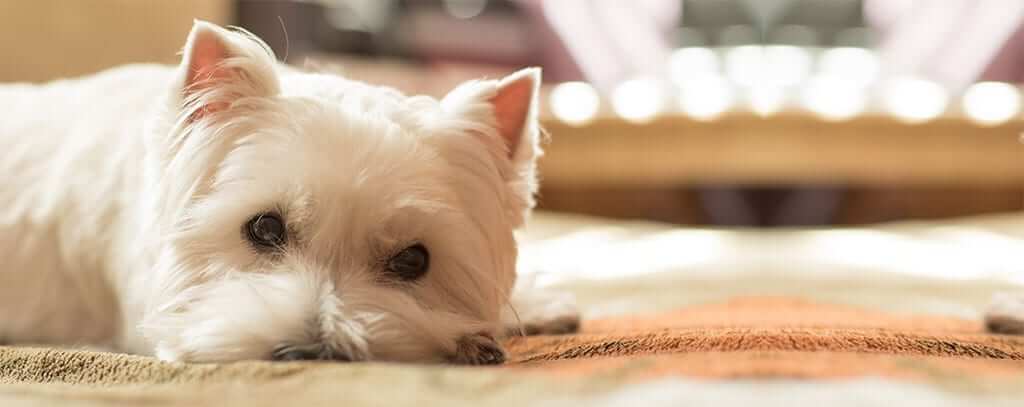
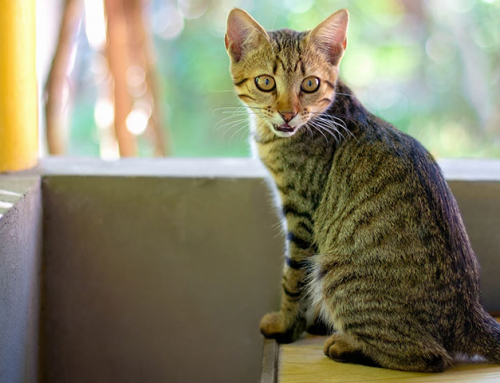
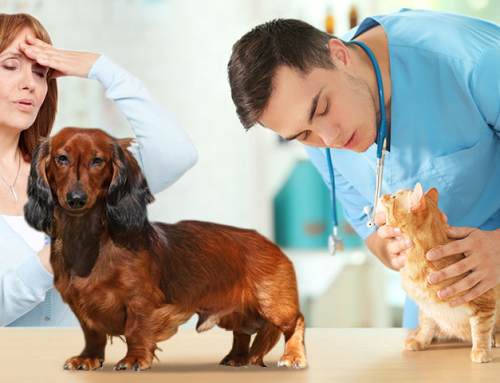
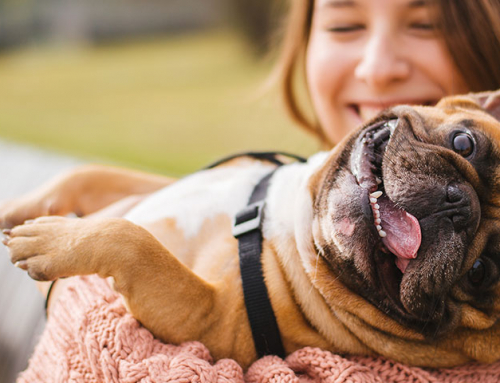

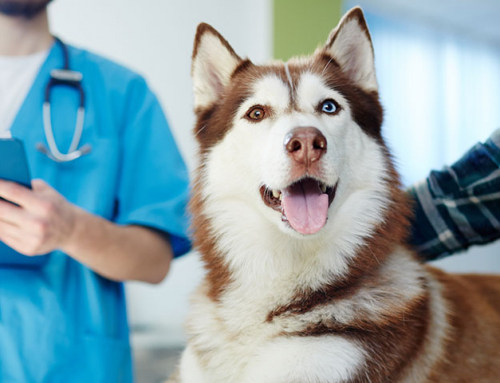
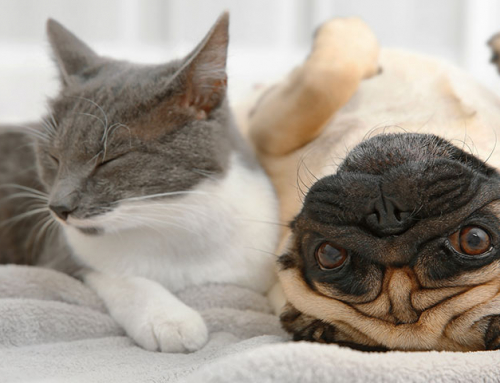
I’m currently facing a very expensive dental surgery due to what I feel was my vet being so focused on getting my 11 y/o diabetic cat, who was diagnosed with DM in early 2020, regulated that her dental issues were down played despite the fact that I brought up concerns regarding her tartar in April/May.
I had also brought up her drooling (despite her not being a drooler) in the fall and that it might be related to possible dental issues but the vet chalked it up to “happy drooling” or nausea.
I again brought up that I was anxious to get her teeth cleaned and checked in December and the vet simply assured me that we were “almost there” regarding getting her DM regulated.
The vet is well aware that my cat is prone to tartar build up and absorption lesions as she had already lost 3 teeth to them before developing DM. I’ve attempted to brush her teeth in the past but she was not having it.
She has now lost yet another tooth due to absorption lesions and is facing extraction of more teeth and her breath is smelling like bad flatulence.
To make matters worse, my cat has been hard to regulate this time around due to me having to wrestle her to take a home glucose readings. This is extremely stressful for the both of us and makes me extremely hesitant to do the recommended every 2 hour, for 12 hours readings for a curve once month,
She is also extremely food motivated and constantly finding a way to get into my other cat’s food (he is free-feed on Rx kibble for different medical issue) regardless of precaution taken (putting it out of her usual jumping range, using a modified chip feeder with sides, back, top, and front narrowed to accommodate only one cat, etc.), and her recent dental issues have most likely been a contributing factor.
I am at my wit’s end dealing with my cat’s diabetes and dental issues.
Am I wrong in feeling that my vet made a judgment error in downplaying my cat’s dental issues or also wondering why my vet has not brought up other alternatives to glucose curves, such as fructosamine or A1C tests, or a CGM such as Freestyle Libre, despite that fact that I’ve informed them that even doing a GC at home is extremely stressful for both the cat and I?
At this point I’m about to seek out an internist or a university vet hospital with a dedicated diabetic department as I don’t feel my current vet is equipped to hand both my cat’s complicated dental and diabetic issues.
Any insights or advice would be helpful.
I’m seriously at my wit’s end, crying, and angry at myself for letting her dental issues get downplayed and not advocating harder for her.
Hello Dr Sutton,
My 11 year old cat has been diagnosed with diabetes for 2 years now. About a month ago I noticed she lost 2 teeth. I took her to the vet and he said she has tartar build-up. I know a dental cleaning would be best but money is tight at the moment and I’m extremely worried about putting her under anesthesia. What can I try to do at home to help her teeth? More specifically can you tell me which dental care products would be safe for a diabetic cat? I’ve come to find that most dental care products contain sugars like sorbitol or dextrose which don’t seem safe for a diabetic cat. I look forward to your response!
I have a 7 pound diabetic who is 9 years old. She is in need of a dental cleaning and I am concerned about her going under anesthesia. What can I do to minimize the risks of anesthesia? Is there an alternative way to have her teeth cleaned without going under anesthesia?
Chat with your vet about anesthesia. There are precautions such as iv catheter and safer induction agents such as Propofol and alfaxone. And chat about the anesthetic monitors your vet has. Be sure that they monitor all that is possible. An AAHA clinic will meet standards of care.
A 9 year old chihuahua likely has tartar and dental disease requiring an anesthetic dental. Non- anesthetic dentals only get the outside of teeth and even then only as much as the pet will allow. We cannot take dental X-rays without a pet being under anesthetic as the sensor is delicate. If a pet chomps on the sensor it is 5 to 9 thousand dollars to replace it.
Have this chat with your veterinarian.
would you recommend a specific cat wet food for my Loulou! She’s in remission and she’s over weight, she’s 13,4 pounds, she’s 11 years old! I feed her Fancy Feast wet food but only (Pate) ! Sorry for bombarding you with my questions , thnx a lot 🙂
Hi, Hala!
Hooray for remission!!!
Now, the feline CET chews wouldn’t be considered low carb, but my own cats find them delicious! (I give them to my own cats now and then.) And they are effective. One of my cats is on canned only Purina DM because it is only 4% carbs. She is on this as I always worry about her becoming diabetic as she is the most food motivated cat I’ve ever known. She keeps me on my toes, perpetually trying to steal the other cat’s food. I now even separate them at meal time, but she is a sneaky one and occasionally outsmarts me. (She is 12.5 years old and has been challenging me as such for 11 years now!) Canned food absolutely affects dental health. If she is on a very low carb food such as the DM canned, you can likely get away with giving her a CET treat every day. If only I had a crystal ball! Do continue to occasionally monitor her blood glucose at home to make sure she continues in remission. Diabetes versus dental tartar…. I’d choose more frequent dental cleanings and the canned food over ever again feeding dry to your kitty.
🙂 Joi
Hello again,
I would like to know if the CET Chew suitable for cats with diabetes or pre-diabetes! Thnx in advance!
Hello Dr. Sutton,
My loulou’s 11 years old, she’s in remission after being diagnosed with diabetes a month ago! Her vet switched her Royal Canine(Dental) kibbles to wet food! So I wonder what will happen to her dental health, and how can I keep her teeth clen at home. Please forget the brushing, she won’t ever allow it!!